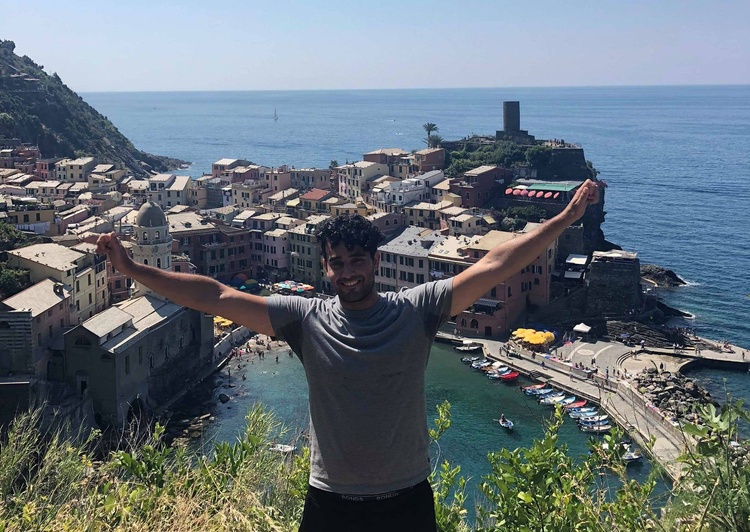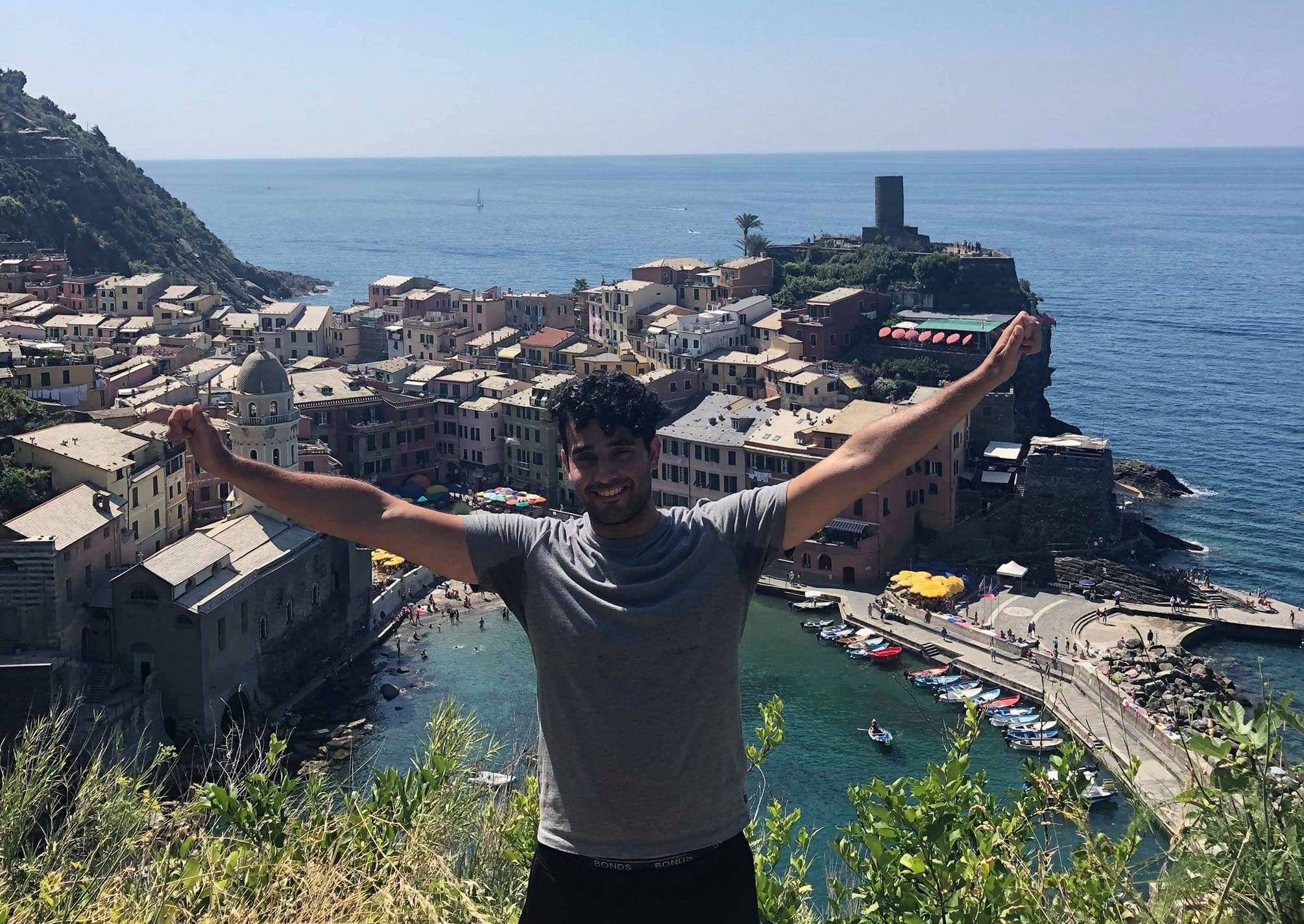Driven by the gratitude and respect he has for his Italian heritage, Romano has striven to immerse himself in the language of his ancestors.
A third-generation Italo-Australian, Romano remembers his “tricolour” childhood with fondness, particularly the long Friday night dinners, family gatherings and cultural nuances unique to the Bel Paese.
His maternal grandparents were born in Carrara, in Tuscany, while his paternal grandparents migrated from Syracuse, in Sicily, in search of a new life.
“When the time came to choose which language I wanted to study in high school, there was only one option in my mind,” Romano says.
“I wanted to learn Italian because my grandparents sacrificed so much to give me the opportunities I have today.
“The least I could do is repay them by learning about their culture and their past.”
Romano undertook a Bachelor of Arts/Arts Education (Secondary) at university, majoring in Italian and Humanities, and also studied Sport Science at ACU.
He began his teaching career in Cairns, before moving to London, where he taught for 15 months.
“I only taught physical education in England,” Romano explains.
“I travelled a lot while I was over there: I made it to about 20 European countries.
“It was such an exceptional experience; travelling opens your mind and pushes you to see the world differently.”
When Romano moved back to Melbourne, he accepted a teaching position at Hume Anglican Grammar primary school in Mickleham.
He teaches Italian to students from kindergarten to Year 6, and physical education to Years 3 and 5.
Romano brings language education out of the classroom and onto the sporting field as he maintains that “60 minutes a week of language education aren’t enough”.
“Children are in love with all aspects of Italian culture: its food, sport, fashion, music, etc,” he continues.
“At the beginning of the school year, I ask students what else they’d like to know about Italy, hoping to spark their interest throughout the year.
“During the last two years of isolation it was difficult, but I managed to engage them with role-playing games.
“I’d give them small, simple scripts to memorise: Year 3 and 4, for example, learned some descriptive phrases and were instructed to make a video of themselves making a fruit salad with their parents.
“It was certainly difficult, but I always encourage them to talk at every opportunity.”
While Hume Anglican Grammar will soon add space for high school classes, Romano hopes to one day teach students of increasingly diverse ages.
“For this school year, I created a module dedicated to the Winter Olympics, combining my passion for sport with the Italian language,” he says.
“Children choose a sport and can be as creative as they like.
“There will always be interactive activities and role-playing in my lessons: it makes the subject more fun and continuously involves the students.”












